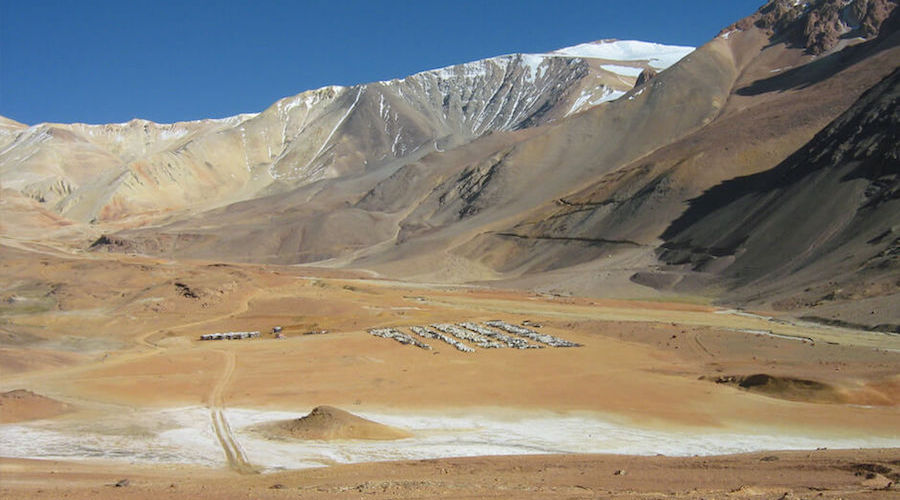Barrick to spend $136 million in failed Pascua-Lama project


Barrick Gold (TSX: ABX; NYSE: GOLD), through its subsidiary Compañía Minera Nevada, has submitted a $136 million environmental impact study (EIA) to Chilean regulators for the definitive closure of its failed Pascua-Lama gold-silver project, straddling the border with Argentina.
“The project consists of adapting the closure phase of the Pascua Lama in a way that allows [restoration of] surface and underground water flows of the upper part of the Del Estrecho River to a natural condition, similar to the one that existed before the partial execution of the project,” the document says.
The original mine plan for the project, shut down in 2020 after years of legal procedures, contemplated an open-pit operation that would have affected three small glaciers on the Chilean side of the Andes. It also involved major construction in the area, huge waste dumps and an investment of more than $8 billion.
In 2016, Barrick began a “drastic revision” of the project and agreed to pay $140 million to resolve a US class-action lawsuit that accused it of distorting facts related to the controversial project.
Shortly after, the company abandoned the idea of an open pit at the site, saying it planned to mine underground instead.
In April 2017, Barrick sold a 50% stake in its Veladero mine in Argentina to Shandong Gold in a transaction worth $960 million. As part of that deal, which made the two firms strategic partners, the Shandong province-based gold miner committed to helping Barrick move forward with Pascua Lama.
Later the same year, the company agreed to pay a further $20 million to a Chilean group to settle an arbitration case filed in 2016 after the gold producer halted payments settled on in 2005.
Barrick CEO Mark Bristow was hopeful about solving the issues surrounding the project, but decided to focus on the Lama portion of the project, in Argentina, 50% owned by China’s Shandong Gold since 2017.
Pascua-Lama would have generated 800,000 to 850,000 oz. of gold and 35 million oz. of silver per year in the first five years of its 25-year life.
The world’s second-largest gold miner by reserves is expected to announce a final investment decision on the Lama portion this year.
THIS ARTICLE WAS ORIGINALLY POSTED ON MINING.COM
Comments